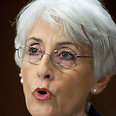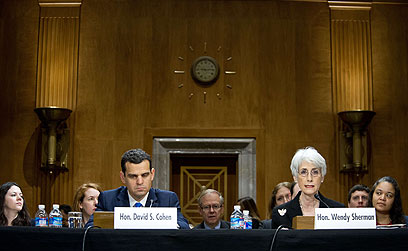
Sherman, who is the top American negotiator with Iran over its controversial nuclear program, added there was time for diplomacy yet, but it was running out.
Related stories:
- Iran expects 'progress' in UN nuclear talks
- Iran FM condemns chemical weapons use in Syria
- Iran tourism booming despite sanctions
Meanwhile, talks between the UN nuclear watchdog and Iran about Tehran's nuclear program failed to clinch an accord and no date has been set for more meetings, a senior UN official said on Wednesday.
"We had intensive discussions today but did not finalize the structured approach document that has been under negotiation for a year and a half now," Herman Nackaerts, deputy director general of the International Atomic Energy Agency (IAEA), told reporters after meeting Iranian officials in Vienna.
"Our commitment to continue dialogue is unwavering. However, we must recognize that our best efforts have not been successful so far. So we will continue to try and complete this process."
Sherman's assessment is in contradiction to that of Former Military Intelligence head Major General (res.) Amos Yadlin who said last month “Over the summer, Iran will reach one to two months before the final decision on a bomb. It is so close that it will make it hard to stop Iran from deciding to finish the push for a bomb.”

Cohen and Sherman before the Senate (Photo: AFP)
Sherman sounded a more optimistic note, saying that during last month's talks in Kazakhstan with UN's atomic agency IAEA Iran showed preparedness for concessions in exchange for the West's calling off the financial sanction crippling its economy.
The official said "they offered too little for too much, but it was the first time they conceded the sanctions were biting, and that represented a weakness in their position."
However, she added there was the possibility the breakthrough in the talks would never come. She further added that developments regarding uranium development have little to do with whoever wins the presidential election in June, as it is Supreme Leader Ayatollah Ali Khamenei who decides Iran's nuclear policy.
The Treasury Department's sanctions chief, David Cohen, told the Congress that the US is exploring different ways to press Tehran into making nuclear concessions. "We will continue to identify ways to isolate Iran from the international financial system," Cohen said. He further added added that financial sanctions cost Iran some $3-5 billion a month.
Reuters contributed to this report
- Receive Ynetnews updates
directly to your desktop















